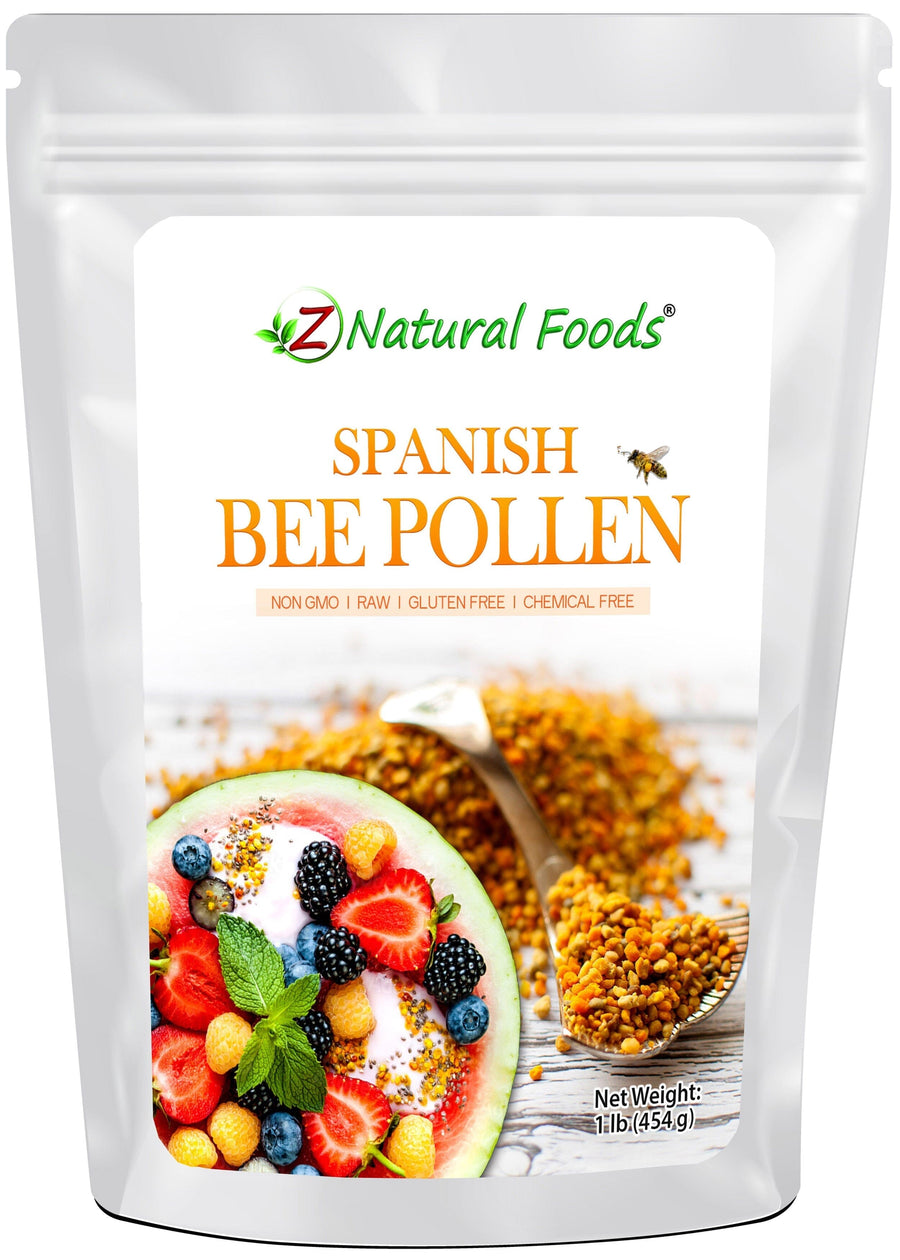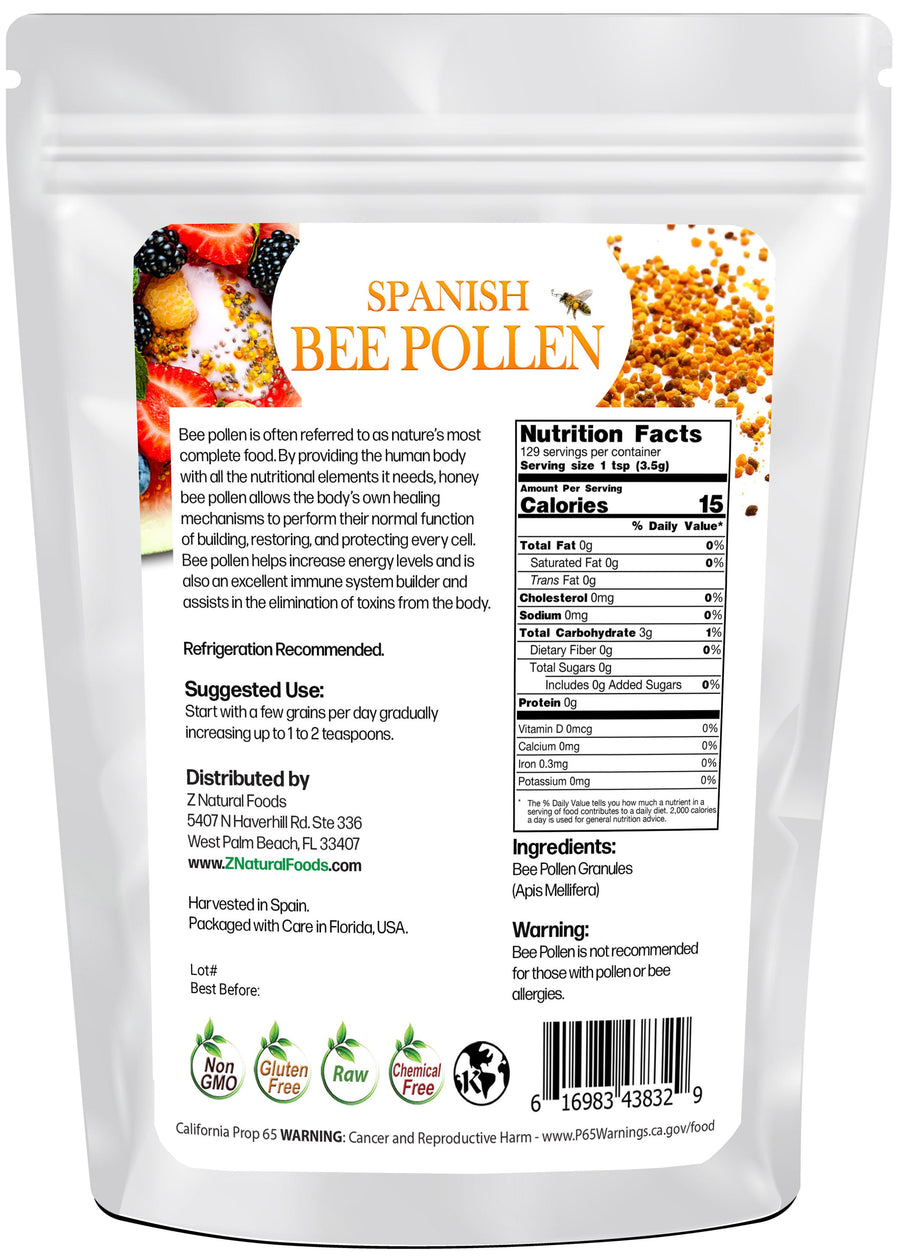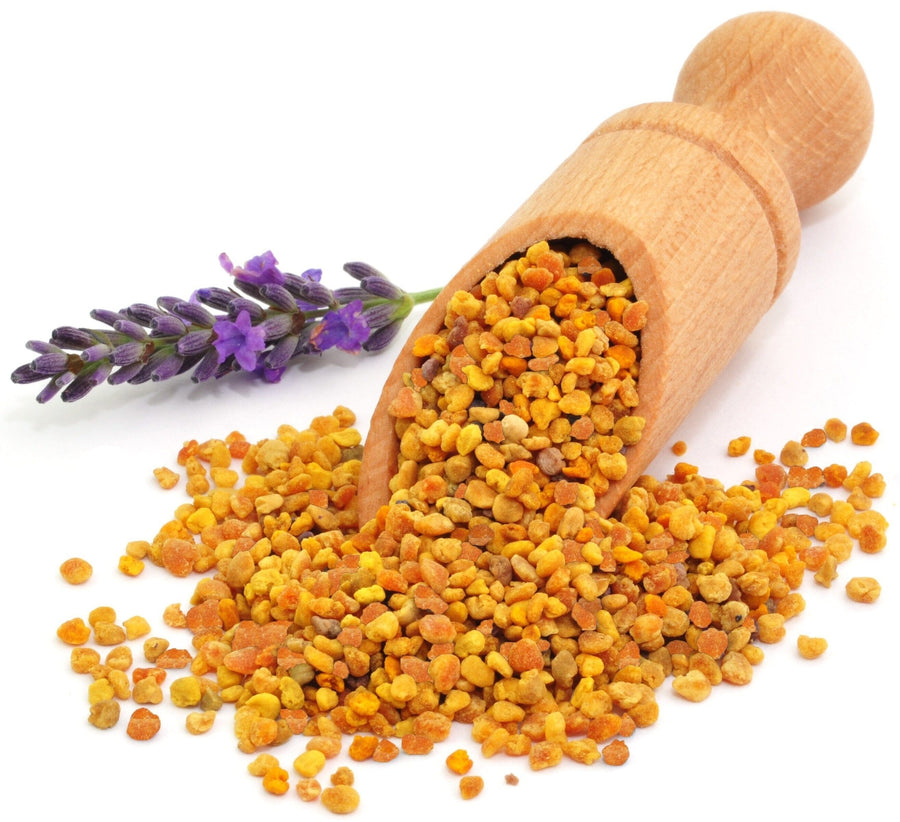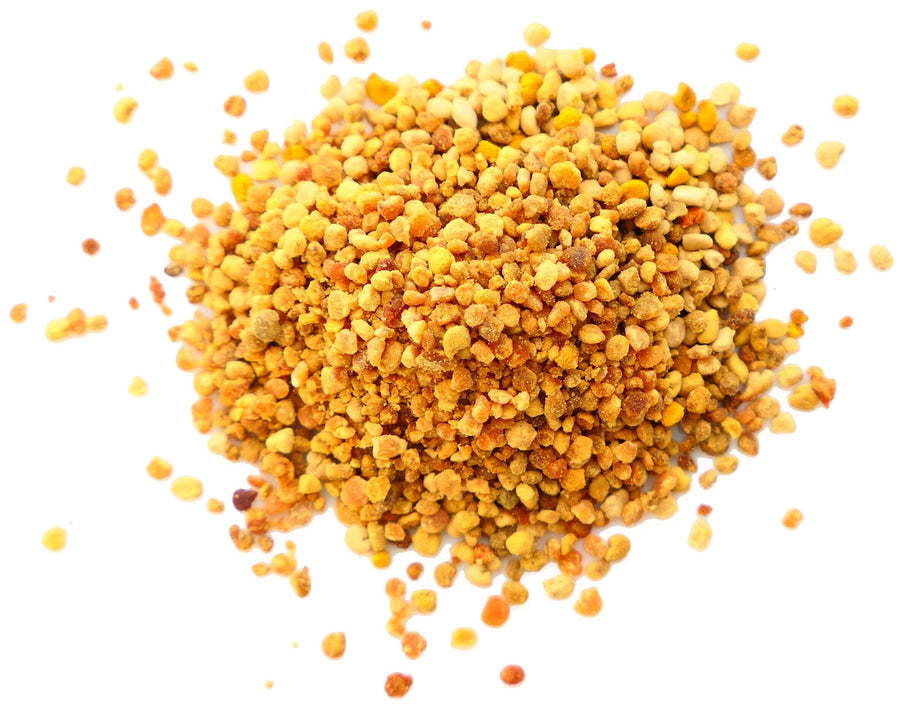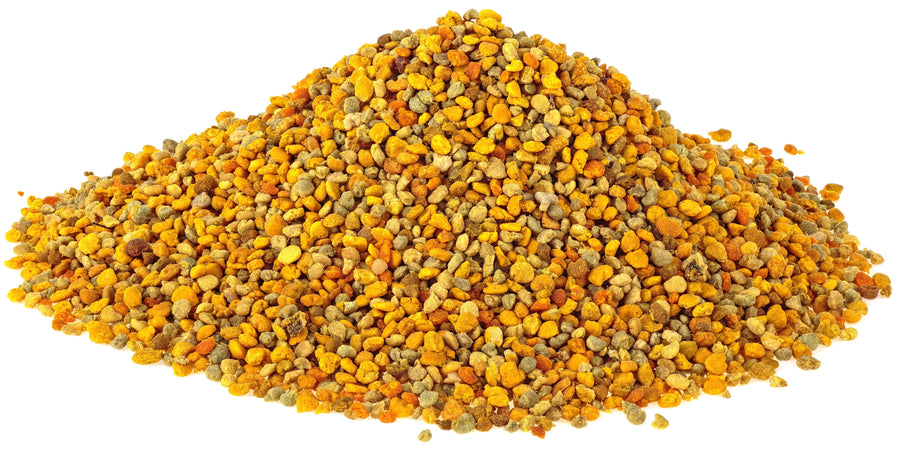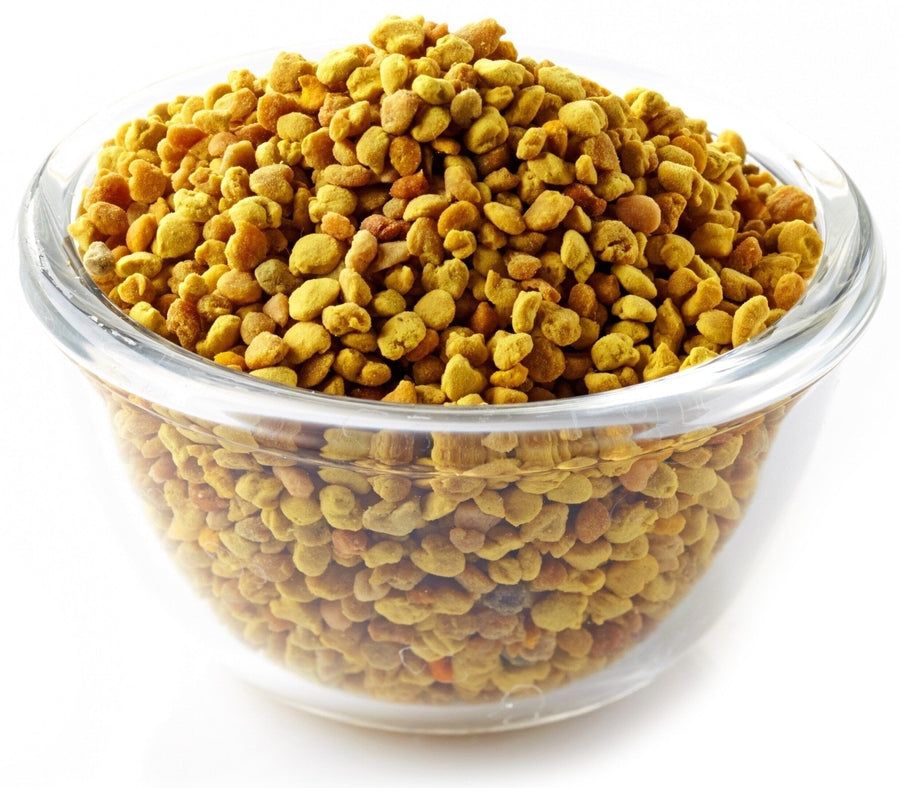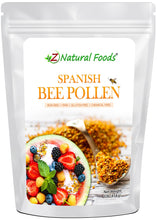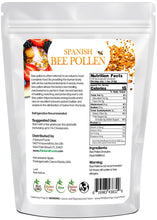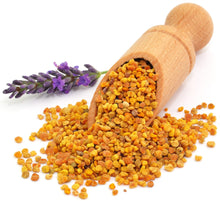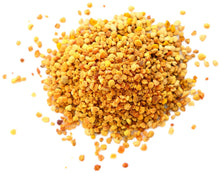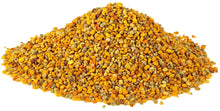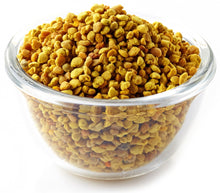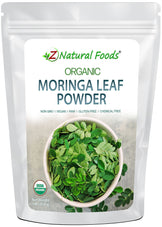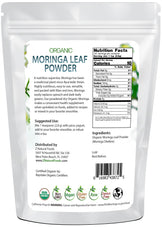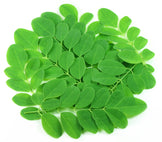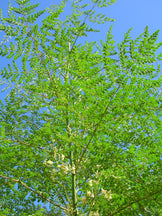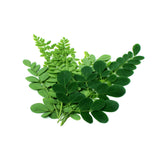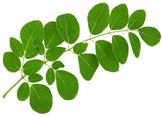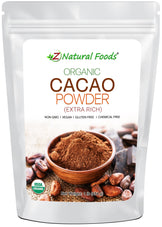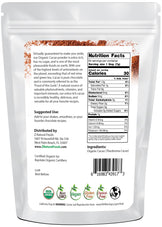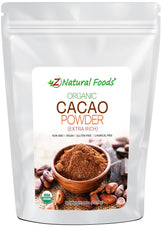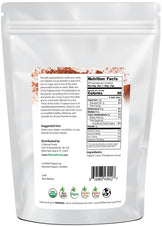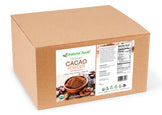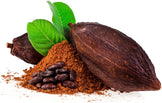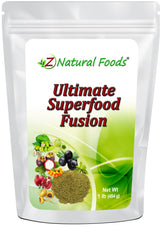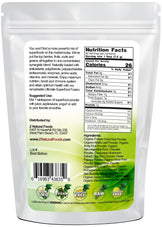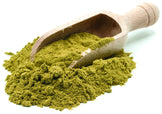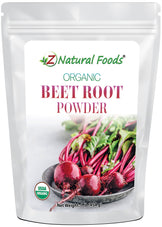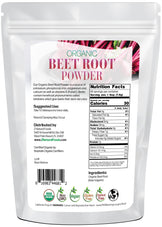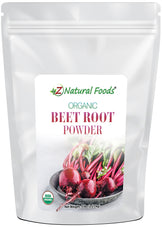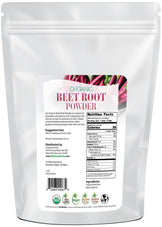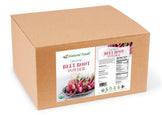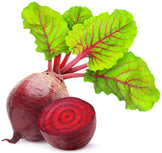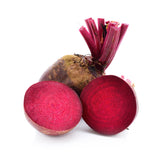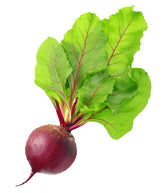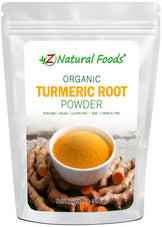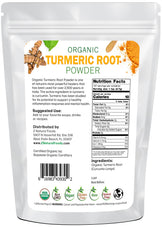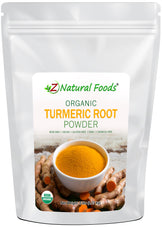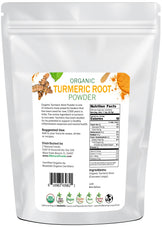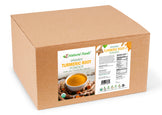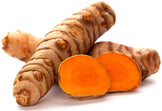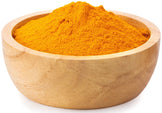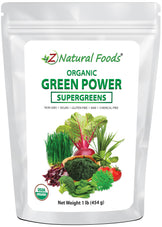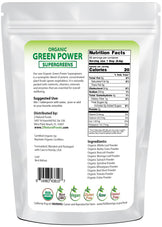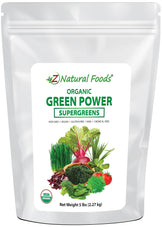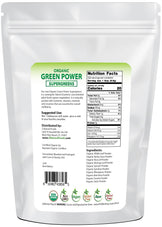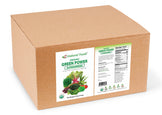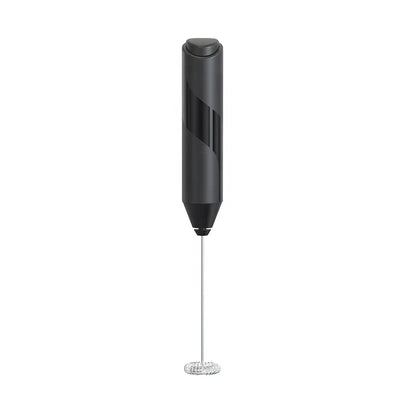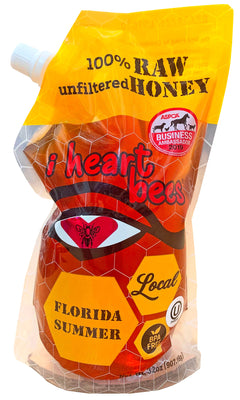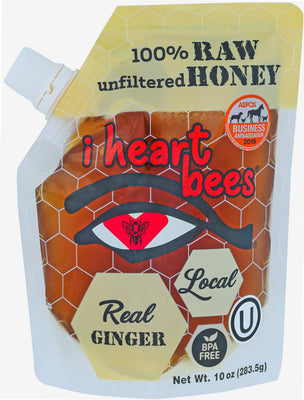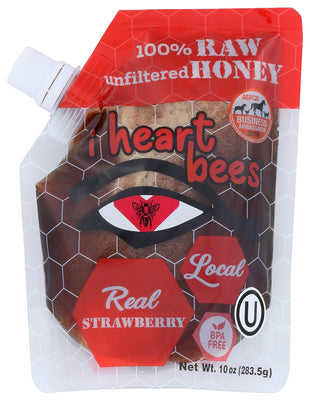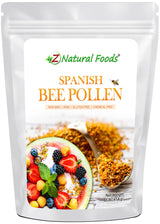About Product
Bee pollen granules are a nourishing food containing vitamins, minerals, proteins, and quality fats.
Each granule contains amino acids, vitamins A, B-complex, C, D, E, and K, minerals including calcium, potassium, magnesium, and zinc, and essential fatty acids.
Additionally, bee pollen granules are a source of flavonoids, phenolic acids, and polyphenols.
Bee pollen granules are a dietary fiber source, containing soluble and insoluble fibers. They provide unique qualities, making them great snacks to help fuel your body throughout the day.
Bee pollen granules offer many benefits, making them a great addition to one’s daily consumption.
- Protein
- Vitamins: Provitamin A (carotenoids), Vitamin B1 (thiamine), Vitamin B2 (riboflavin), Vitamin B3 (Niacin), Vitamin B5 (pantothenic acid), Vitamin B6 (pyridoxine), Vitamin B12 (cyamococobalaminn), Vitamin C (ascorbic acid), Vitamin D, Vitamin E, Vitamin H (biotin), Vitamin K, Choline, Inositol, Folic Acid, Pantothenic Acid, Rutin, Vitamin PP (nicotinamide)
- Micro-Nutrients: Nucleosides, Guanine, Hexodecanol, Auxins, Xanthine, Alpha-Amino-Butyric Acid, Brassins, Hypoxalthine, Monoglycerides, Gibberellins, Crocetin, Diglycerides, Kinins, Zeaxanthin, Triglycerides, Vernine, Lycopene, Peutosaus
- Minerals: Calcium, Phosphorus, Iron, Copper, Potassium, Magnesium, Manganese, Silica, Sulphur, Iodine-Chlorine, Boron-Molybdenum
- Enzymes: Disstase, Phosphatase, Amylase, Catalase, Saccharase, Diaphorase, Pectase, Cozymase, Cytochrome Systems, Lactic Dehydrogenase, Succinic Dehydrogenase
- Fatty Acids: C-6, C-8, C-10, C-12, C-14, C-16, C-15, C-18, C-22, C20, Oleic, Palmitic, Linoleic
- Pigments: Xarmmepayll, Carotenes (Alpha & Beta Carotene)
- Amino Acids: Tryptophan, Leucine, Lysine, Isoleucine, Methionine, Cystine, Threonine, Arginine, Phenylalanine, Histidine, Valine, Glutamic Acid, Tyrosine, Glycine, Serine, Proline, Alanine, Aspartic Acid, Hydroxyproline, Butyric Acid
Suggested Use: Start with a few grains per day and slowly work your way up to 1 to 2 teaspoons daily. We recommend refrigerating this product to maintain freshness.
Mixing suggestion: To increase flavor and nutritional profile, combine our organic extra-rich cacao and lucuma powders into a smoothie.
Botanical Name: Apis mellifera
Other Names: Buckwheat pollen, pine pollen, Pu Huang, honeybee pollen, Polen.
Parts Used: Pollen.
Ingredients: Raw Bee Pollen Granules.
Origin: Harvested in Spain. Packaged with care in Florida, USA.
Allergen Statement: Contains Bee Products.
Warning: Bee Pollen is not recommended for those with pollen or bee allergies. Bee pollen should not be taken if you have prior reactions to bee stings or pollen. In some cases, anaphylactic shock has been reported. You should not use bee pollen if you have a history of anaphylactic shock from any allergic reaction. If you have asthma, please consult your doctor before using bee pollen. Bee pollen contains allergens that may interact adversely with asthma.
How to Maintain Optimum Freshness
- This product is packaged in airtight stand-up, resealable foil pouches for optimum freshness.
- Once opened, push the air out of the pouch before resealing it to preserve maximum potency.
- Keep your powder in a cool, dark, dry place.
This product is 100% natural and minimally processed:
Taste, smell, texture, and color vary from batch to batch. Go here to learn why our products may naturally vary.
The important protections we take to bring you safe and nutritious superfoods:
Please go here to discover the essential steps we take to deliver fresh, quality nutrition.
Bulk Quantities?
Need to order a large quantity of our products? We are happy to help! Please get in touch with our Bulk department to discuss the details.
* Product packaging, pictures, and origin may vary.
Sources & References
1. O'Neill, Ruth P. "Spatial and Temporal Trends in Leafcutting Bee Mortality". Montana State University. More than one of |author= and |last= specified (help)
2. "Examination of "pollen Balls" in the Nests of the Alfalfa Leafcutting Bee, Megachile Rotundata". United States Department of Agriculture. Agricultural Research Service. Retrieved 10 September 2011.
3. Thorp, Robbin W. "Vernal pool flowers and their specialist bee pollinators". California Vernal Pools. Retrieved 11 September 2011.
4. Sammataro, Diana and Avitabile, Alphonse. (2011) The Beekeeper's Handbook. Cornell University Press. ISBN 0-8014-7694-1
5. "What Is Bee Bread?". Keeping-honey-bees.com. September 2011. Retrieved October 5, 2011.
6. Black, Jacquelyn G. (2004). Microbiology. John Wiley and Sons. ISBN 0-471-42084-0.
7. Oxford Canadian Dictionary
8. Wong, Cathy (February 2, 2005). "Bee Pollen". about.com. Archived from the original on 21 January 2009. Retrieved 2009-01-20.
9. http://www.envirobee.com/beepollen3.htm
* Reviews & Success Stories Disclaimer
Product reviews solely reflect the views and opinions expressed by the contributors and not those of Z Natural Foods. Z Natural Foods does not verify or endorse any claims made in these reviews. Statements have not been evaluated by the FDA and are not intended to diagnose, treat, cure, or prevent any disease or health condition.REFERRAL PROGRAM
Share your personal link to your friends and welcome them with rewards. Claim yours when they make their first purchase.

GIVE
$10 off discount

GET
$10 off discount
Other products in the same category
Electric Mixer & Frother
$6.99
Summer Blend Honey
$19.99
Ginger Honey
$11.99
Strawberry Honey
$11.99
